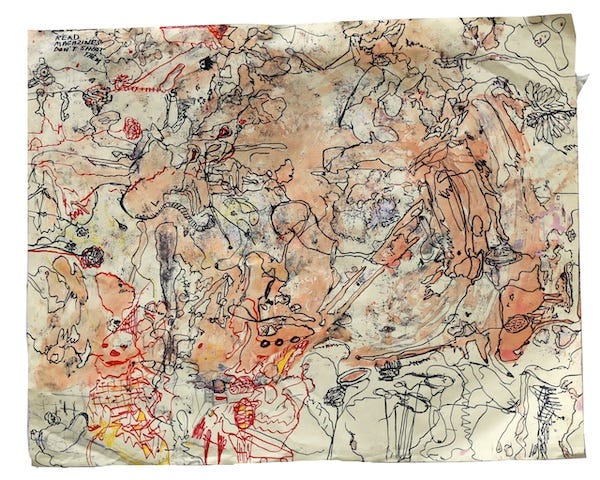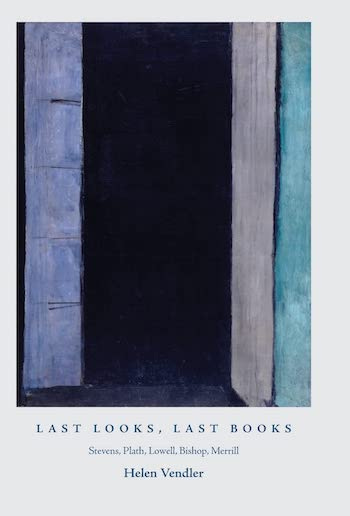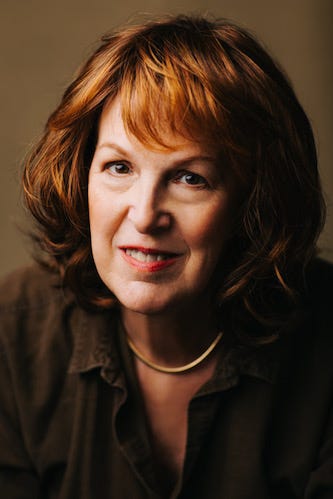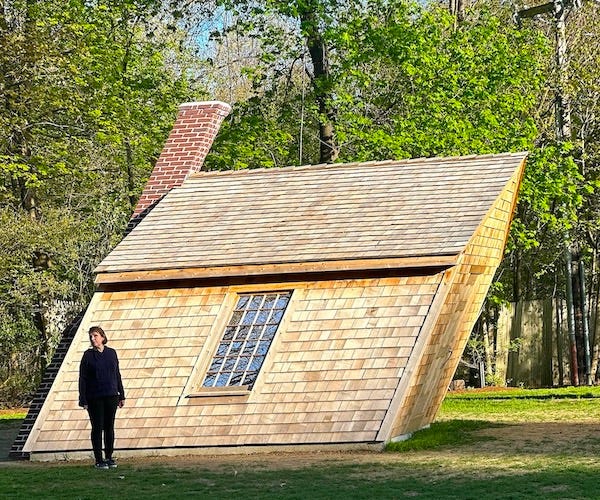The Arts Fuse Newsletter, May 8
Coming Attractions, Clea Simon on "Bad Boy Beat," Nicole Veneto watches "The TV Glow," Thoreau's Walden Pond cabin knocked askew, and Broadway Musical Revivals
From The Editor's Desk:
Literary critic Helen Vendler died on April 23 at the age of 90. She was a chemistry major in college, and that background in science, she said in her 1996 interview for Paris Review, trained her “to look for evidence. You have to write up evidence for your hypothesis in a very clear way; your equations have to come out even; the left side has to be balanced by the right side. One thing has to lead to the next, things have to add up to a total picture. I think that’s a natural thing to do with literature too. I feel very strongly that anything you say should be backed by evidence from the text, so that you follow a constant loop between generalizations and evidence. I don’t like criticism that is simply rhetorically assertive at a very high level without much reference to evidence in the text.” She was a powerful critic because her justifications were backed up by nuanced examinations of linguistic specifics, judgments buttressed by reasoned close reading.
My personal favorite among Vendler’s books is 2010’s Last Looks, Last Books. Her analytical laser beams generate considerable poigance as she probes the robustly elegiac meditations of five American poets in their final books: Wallace Stevens, Sylvia Plath, Robert Lowell, Elizabeth Bishop, and James Merrill. As usual for Vendler, criticism comes down to adjudicating balance: “The poet, still alive but aware of the imminence of death, wishes to enact that deeply shadowed but still vividly alert moment: but how can the manner of a poem do justice to both the looming presence of death and the unabated vitality of spirit?”
The chapter on Stevens’s The Rock ends beautifully: “But in the poems I have singled out here, he finds, in the tragic end-stage of life, modern and disturbing styles of farewell, both structural and stylistic, which delineate not only the statis, horror, and unreality of that end-stage but also its inquisitive appetite for knowledge, its lullabies in the midst of burial, and, even in its worst mental rigor mortis, the unexpected and solacing sensual warmth of memory.” Vendler was an empiricist, not a sentimentalist: note that phrase “lullabies in the midst of burial.” Her critical aim was to arrive at the “total picture.”
Vendler was obviously amused during her Paris Review interview when poet Henri Cole asked if she had a personal motto. She responded with two bracing choices: “God and the imagination are one,” from Wallace Stevens? “How high that highest candle lights the dark”?
—Bill Marx, Editor-in-Chief
Coming Attractions through May 21 — What Will Light Your Fire
Compiled by the Arts Fuse Editor

Our expert critics supply a guide to film, dance, visual art, theater, author readings, and music. More offerings will be added as they come in.
Film Review: “I Saw the TV Glow” — Nostalgia Trap
By Nicole Veneto

I Saw the TV Glow is nothing short of astonishing, a defining moment in queer cinema in the making and proof positive that Jane Schoenbrun is one of our generation’s most needed filmmakers.
Author Interview: Clea Simon on Her Latest Mystery Novel — “Bad Boy Beat”
By Brett Milano
Clea Simon’s latest who-dun-it features the memorable heroine Em Kelton, a tough Boston journalist who can mix with the hard-boiled reporters and hard-living cops on her beat — none of whom want to realize that she happens to be a brilliant detective.
Visual Arts Review: “Munch and Kirchner: Anxiety and Expression” — More Than Melancholic
By Peter Walsh

Yes, Munch and Kirchner were into angst; but they were also artists of great energy, talent, and daring, who found new ways of working and did much to shape the direction and force of modern art.
Theater Review: “A Strange Loop” — An Exhilarating Musical Loop-de-Loop
By David Greenham
This superb Speakeasy Stage Company/Front Porch Collective co-production is emotionally charged and immediate, intent on keeping the material fresh and raw.
Visual Arts Review: “Huff and a Puff” — An Advanced Perspective on Public Art
By Mark Favermann
This provocative installation at the deCordova Sculpture Park & Museum is a “dystopian meditation on the lives of marginalized groups, debt, the challenges of home ownership and living in a climate-stressed world today.”
Theater Reviews: New Broadway Revivals of “Cabaret,” “The Who’s Tommy,” and “The Wiz” Vie for Attention in a Crowded Season
By Christopher Caggiano
The spring season has yielded a sizable crop of musical revivals. But how many of them actually bear fruit?
Help Keep The Arts Fuse Lit!
Precious few independent online arts publications make it to double digits. Please give us the resources the magazine needs to persevere at an essential cultural task.
Keep the Fuse lit and support our 70+ writers by making a donation.
The Arts Fuse also needs underwriting for the magazine to continue to grow.
And…tell your friends about the in-depth arts coverage you can’t get anywhere else.
Questions, comments, concerns?
Editor-in-Chief
Bill Marx
wmarx103@gmail.com










